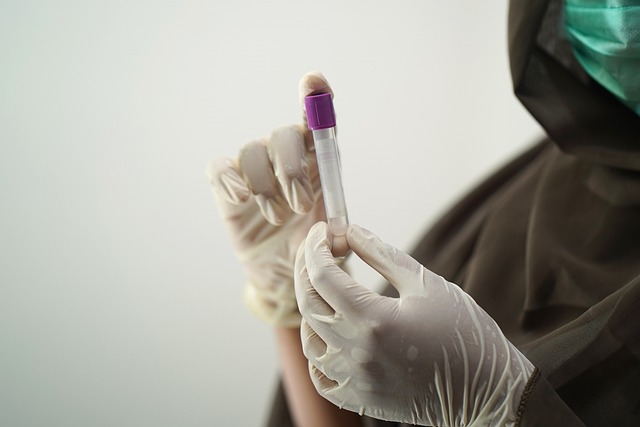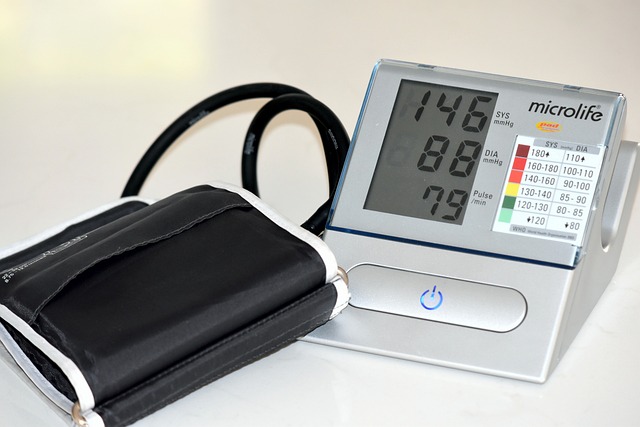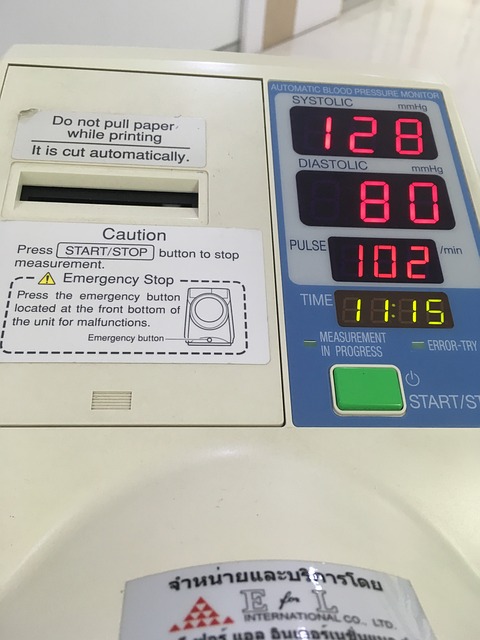The role of a comprehensive thyroid examination kit, which includes the Standard Liver Blood Test UK, is critical in the UK for accurately diagnosing and managing thyroid disorders. This kit measures key hormone levels like TSH, FT4, and FT3, as well as autoimmune markers TPOAb and TgAb, to assess thyroid function and detect potential autoimmune conditions. The integration of the Standard Liver Blood Test UK aligns with NICE guidelines, highlighting the importance of liver health assessment in patients with thyroid issues due to their interrelated nature. This approach facilitates early detection and intervention, potentially improving patient outcomes by considering both thyroid and liver health simultaneously. It underscores the UK's commitment to a multifaceted healthcare approach that emphasizes comprehensive disease management and personalized patient care, focusing on the full spectrum of each individual's health needs. The UK's thyroid disorder management relies on precise hormone level measurements, with TSH being the initial indicator of thyroid function, followed by T3 and T4 measurements to gauge actual hormone levels in circulation. These tests are indispensable for diagnosing and monitoring thyroid conditions, and their results must be interpreted professionally alongside clinical assessments to ensure accurate diagnoses and effective treatment plans tailored to each patient's unique health profile.
navigator’s guide to navigating thyroid health, this article demystifies the standard thyroid examination kit utilized for UK patients. We delve into the essentials of a thorough thyroid function test panel and elucidate how these tests fit into the broader context of patient care within the UK’s healthcare system. Akin to a standard liver blood test UK, understanding these tests is pivotal for both medical professionals and patients in managing thyroid conditions effectively.
- Comprehensive Analysis of the Standard Thyroid Examination Kit for UK Patients
- Key Components and Procedures in a Typical Thyroid Function Test Panel
- Understanding the Interpretation and Implications of Thyroid Test Results for Patient Care in the UK
Comprehensive Analysis of the Standard Thyroid Examination Kit for UK Patients

A standard thyroid examination kit for UK patients is a critical tool in the diagnosis and management of thyroid disorders. This kit typically includes a comprehensive set of tests designed to assess thyroid function and related health parameters. Among these, the Standard Liver Blood Test UK is particularly noteworthy as it provides insights into liver health, which can be indirectly affected by thyroid dysfunction. The kit often comprises measurements of thyroid-stimulating hormone (TSH), free thyroxine (FT4), and free triiodothyronine (FT3) levels to evaluate the thyroid’s function. Additionally, thyroid peroxidase antibodies (TPOAb) and thyroglobulin antibodies (TgAb) may be included to detect autoimmune activity against the thyroid gland. The inclusion of the Standard Liver Blood Test UK within this kit is beneficial as it allows for a holistic view of the patient’s health, ensuring that any concurrent liver issues are identified and addressed. This comprehensive analysis facilitates early detection and intervention, leading to improved patient outcomes.
Furthermore, the integration of the Standard Liver Blood Test UK within the thyroid examination kit aligns with the UK’s National Institute for Health and Care Excellence (NICE) guidelines, which recommend regular monitoring of liver function in patients with known liver disease or those at risk due to conditions like hypothyroidism or hyperthyroidism. The presence of this test underscores the importance of considering systemic health implications when managing thyroid disorders. It also highlights the necessity for a multifaceted approach to patient care, where thyroid and liver function are evaluated concurrently to provide a more accurate picture of overall well-being. This proactive stance in healthcare delivery is reflective of the UK’s commitment to high-quality patient care and comprehensive disease management.
Key Components and Procedures in a Typical Thyroid Function Test Panel

A thyroid function test panel is a crucial diagnostic tool for assessing the health of the thyroid gland, which plays a pivotal role in regulating metabolism. In the UK, a standard thyroid examination kit typically includes a series of blood tests that measure levels of thyroid-stimulating hormone (TSH), thyroxine (T4), and triiodothyronine (T3). The TSH, produced by the pituitary gland, is a key indicator of thyroid function; it signals the thyroid to produce these hormones. Elevated or suppressed levels of TSH can suggest hyperthyroidism or hypothyroidism, respectively. Alongside TSH, measurements of T4 and T3 are essential as they reflect the amount of thyroid hormone circulating in the body. T4 is the main hormone produced by the thyroid and has a longer half-life, while T3 is biologically more active and influences metabolism directly. A standard liver blood test UK, which may include components like Alanine Transaminase (ALT) and Aspartate Transaminase (AST), can also be part of the panel as liver health can affect thyroid function, particularly in cases of hypothyroidism or when evaluating the impact of thyroid disorders on overall well-being.
In addition to these hormone measurements, antibody tests may be included in the thyroid examination kit. Antibodies such as anti-thyroperoxidase (TPOAb) and anti-thyroglobulin (TgAb) antibodies can indicate an autoimmune disorder of the thyroid, like Hashimoto’s disease or Graves’ disease. These tests are particularly important for diagnosing and monitoring the progression of autoimmune thyroid diseases. The interpretation of these results must be done by a qualified healthcare professional who can integrate this data with clinical findings to arrive at an accurate diagnosis and treatment plan tailored to each patient’s unique needs, ensuring the most effective management of their thyroid condition.
Understanding the Interpretation and Implications of Thyroid Test Results for Patient Care in the UK

In the UK, the management of thyroid disorders relies heavily on accurate and interpretive thyroid function tests, which are integral to patient care. A standard thyroid examination kit typically includes measurements of thyroid-stimulating hormone (TSH), triiodothyronine (T3), and thyroxine (T4) levels. These hormones regulate metabolism, growth, and development. The TSH, produced by the pituitary gland, is often the first test ordered as it provides critical information about how well the thyroid is functioning. Elevated or suppressed levels of TSH can indicate hyperthyroidism or hypothyroidism, respectively. Patients in the UK should understand that abnormal TSH levels are often the first sign of thyroid dysfunction and may prompt further investigation with additional hormone measurements to confirm the diagnosis. For instance, elevated T4 and T3 levels might suggest an overactive thyroid, while low levels can indicate an underactive thyroid. Accurate interpretation of these results is paramount for timely intervention and effective management of thyroid conditions.
The implications of thyroid test results are profound and necessitate a tailored approach to patient care in the UK. General practitioners (GPs) and endocrinologists must consider the individual’s unique clinical presentation, comorbidities, and lifestyle factors when interpreting these tests. For example, the Standard Liver Blood Test UK is often included in a comprehensive health screening as liver function can be influenced by thyroid hormones and vice versa. Abnormal liver test results in conjunction with thyroid dysfunction may suggest underlying autoimmune processes or drug-induced liver injury. It is crucial for healthcare providers to integrate findings from such liver function tests into the broader context of a patient’s health status, ensuring comprehensive care that addresses both thyroid and hepatic health as needed. This holistic approach ensures that patients receive personalized treatment plans that consider all relevant biological systems, leading to improved health outcomes.
In conclusion, the standard thyroid examination kit plays a pivotal role in the diagnostic journey of UK patients. This comprehensive analysis has highlighted the essential components and procedures included in a typical thyroid function test panel, alongside the interpretations and implications of these tests for patient care within the UK. The inclusion of a standard liver blood test UK is particularly noteworthy, as it allows healthcare providers to detect and monitor not only thyroid disorders but also associated liver health issues. Patients can thus receive holistic care that addresses both endocrine and hepatic conditions. Understanding the nuances of these tests empowers medical professionals to deliver accurate diagnoses and effective treatment plans, ultimately improving patient outcomes.
